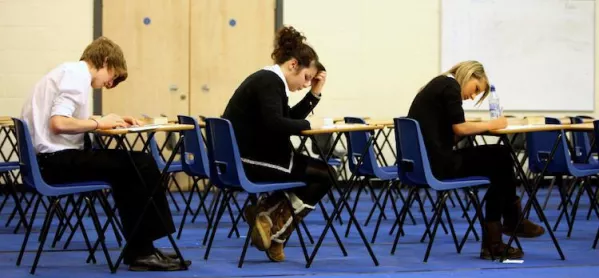- Home
- Restrict academy chain expansion, ministers warned
Restrict academy chain expansion, ministers warned

There is “not yet the evidence” to support widespread expansion of multi-academy trusts, according to an influential committee of MPs.
The Education Select Committee said it had “significant concerns” about the performance, accountability and expansion of MATs, and called for the government to allow high-performing local authorities to set up their own MATs.
In a report published today, the committee says there is “not yet the evidence to support large-scale expansion” of MATs and urged the government to place “tighter restrictions” on their growth.
The report casts doubt on the ability of the Department for Education or the Education Funding Agency to cope with the pressure on their financial oversight capabilities that will be created by significant MAT expansion.
It also refers to TES’ investigation into the issue of “untouchable” schools, which academy chains are unwilling to sponsor because they have longstanding problems.
Neil Carmichael, the Conservative MP who chairs the committee, said recent government policy - such as the U-turn on forced academisation and the dropping of its Education for All Bill - had caused “uncertainty and instability in the sector”.
“We have significant concerns about the performance, accountability and expansion of MATs,” he said.
Many MATs ‘failing to improve’
“While some MATs are producing excellent results and making a valuable contribution to our education system, a considerable number are failing to improve and are consistently at the bottom of league tables.”
Policy and oversight have been “playing catch-up” with the government’s push to create more academies, and “only time will tell” whether MATs are better than councils in addressing educational underperformance, he said.
Mr Carmichael added: “If the government is to pursue the goal of further academisation, it will need to work with local authorities and allow those councils with a track record of strong educational performance to use their expertise within their education department to create MATs.”
Mary Bousted, general secretary of the ATL teaching union, said MATs had “grown too quickly and have proved themselves unable to provide effective and timely support to their schools”.
She added: “The government needs to exercise proper control of MATs, and the select committee’s recommendation that high-performing local authorities should be able to set up MATs is entirely sensible, necessary and welcome”.
However, Malcolm Trobe, interim general secretary of the Association of School and College Leaders, was less critical of the government’s policy.
He pointed out that expanding MATs are part of a “developing system” and said “early signs” indicated that there are “significant benefits” in schools working together through MATs or federations of maintained schools.
The report recommends that the DfE commissions independent research on what the best MATs are doing.
However, it identifies six characteristics which the committee believes trusts must have to be successful:
- Recognition of the crucial role played by teaching staff;
- Regional structures which allow schools to share expertise and resources;
- Mechanisms for tangible accountability at all levels;
- Robust financial controls;
- A shared vision for school improvement across all schools within the trust;
- A commitment to improving performance and attainment.
A Department for Education spokesperson said: “Thanks to our reforms there are now almost 1.8 million more children being taught in schools rated ‘good’ or ‘outstanding’ schools than in 2010. The best multi-academy trusts are turning round struggling schools across the country and providing good school places for thousands of children.
“The oversight and accountability system for academies and MATs is more robust than LA maintained schools, allowing us to take swift action to deal with underperformance. Where an academy is failing to reach the standards we expect, action is taken, including transferring schools to new trusts. We are already developing a ‘growth check’ to ensure good trusts only take on new schools when they are ready and it will not impact on the education of the children they are already responsible for.
“Local authorities are already able to be part of a MAT with up to a fifth of its board having links to their local authority. We encourage all trusts to work collaboratively and the best already do so, but maintaining their independence is a crucial part of encouraging the innovation that has driven up standards in so many schools.”
Want to keep up with the latest education news and opinion? Follow TES on Twitter and like TES on Facebook
Keep reading for just £1 per month
You've reached your limit of free articles this month. Subscribe for £1 per month for three months and get:
- Unlimited access to all Tes magazine content
- Exclusive subscriber-only stories
- Award-winning email newsletters



